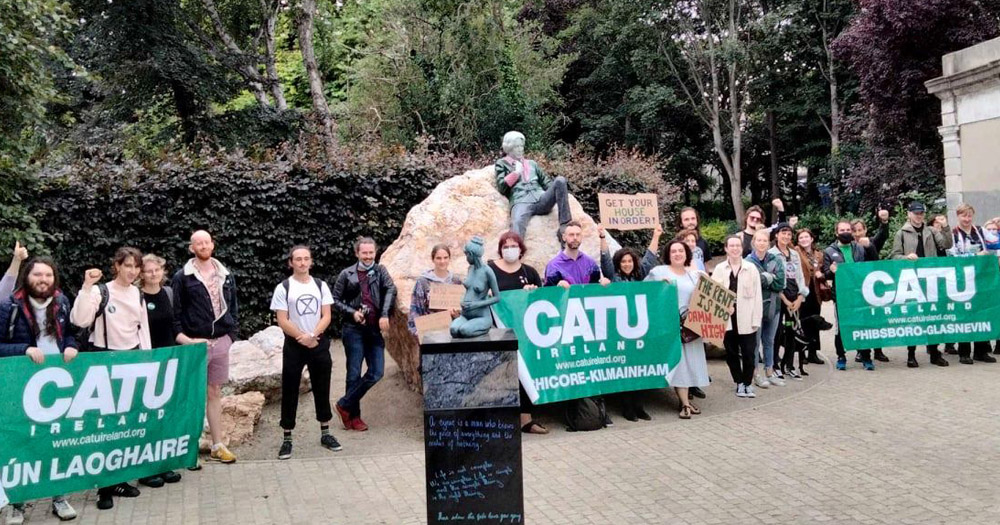Government housing policy is the cause of the housing crisis. Homelessness, waiting-lists and
extortionate private rent levels are the symptoms of policy designed to benefit speculators,
landlords, hedge funds: the business class.
The number of homes available to rent has fallen close to historic lows, whilst rents have
increased sharply just as the economy emerges from the restrictions of the pandemic according
to recent figures from property website Daft.ie. At the beginning of February there existed just
712 properties available to rent in Dublin and 1,400 across the rest of the twenty six counties.
This is the lowest since their records began in 2006.
This comes at the same time that we see a sharp spike in rents across the island of Ireland. The
lifting of a brief rent freeze during Covid lockdowns saw an average 4 per cent increase in rent
towards the end of last year. Currently, average rent in south county Dublin is €2,258 and
€1,897 in the north. The average rent on Daft across southern Ireland was €1,524 at the end of
2021, a rise of more than 10 per cent over the year.
At present, minimum wage remains fixed at €1,774.5 per month and higher costs of living are
emerging alongside the inflation crisis, from energy to consumer goods and everything in
between. It begs the question, how much longer will we accept this? The current system is not
broken, it is designed this way; government, vulture funds and landlords are its chief upholders.
Government housing policy has allowed Ireland’s gombeen landlord class to do the dirty work,
regularly increasing rents and hoarding large swathes of housing stock, and in doing so have
opened the ground for vulture and cuckoo funds to run riot and assert dominance over the
‘housing market’. Ireland’s largest landlord, Ires Reit, received €8.7 million in HAP from Dublin
City Council in 2021, a €1 million increase from the previous year. This rise accounted for
almost two-thirds of Ires Reit’s increase in rental income. Cuckoo funds are now outbidding
households by a massive premium en masse which is pushing families even further away from
home ownership. It’s their world, we’re just living in it.

The limitations of meaningful change coming from the chambers of the Dail or Stormont have
been well documented. Well meaning politicians can bring as many motions to the floors of
government buildings as they like but history shows us that they’ll be met with countless
‘solutions’ from the ruling parties, they will do everything but solve the crisis. They will do their
level best not to interfere in the massive profits being ratcheted up by their business cronies,
those whose interests they really serve. It is now clear that the radical change needed to solve
the crisis will come, not from those in the halls of power, but through a disciplined, well
organised people’s movement with clear demands.
It is the duty of CATU to mobilise its membership and lead this resistance. In the short term, it
will come from our members embedding themselves in communities; in our membership
protecting its interests through collective action, be they in terms of living conditions, rent
negotiations or general disputes; by our members continuing to organise and defend against
threats of eviction; by enriching our understanding of the crisis and its roots – the landlord class
know very well how to protect their interests, it’s time we did too. In the long term, this will come
through the union encouraging rigorous debate and discussion across the island towards
developing our own solutions and strategies to bring about change.
We must ask ourselves, how can we meaningfully challenge and bring to an end the domination
this housing crisis is inflicting upon our lives? How can we tip the balance of power from
landlord to renter; from vulture funds to a new form of housing provision that benefits the many
rather than the few?
Join CATU and be part of that change!
www.catuireland.org/join
by Aaron Nolan, CATU Liberties-Rialto


